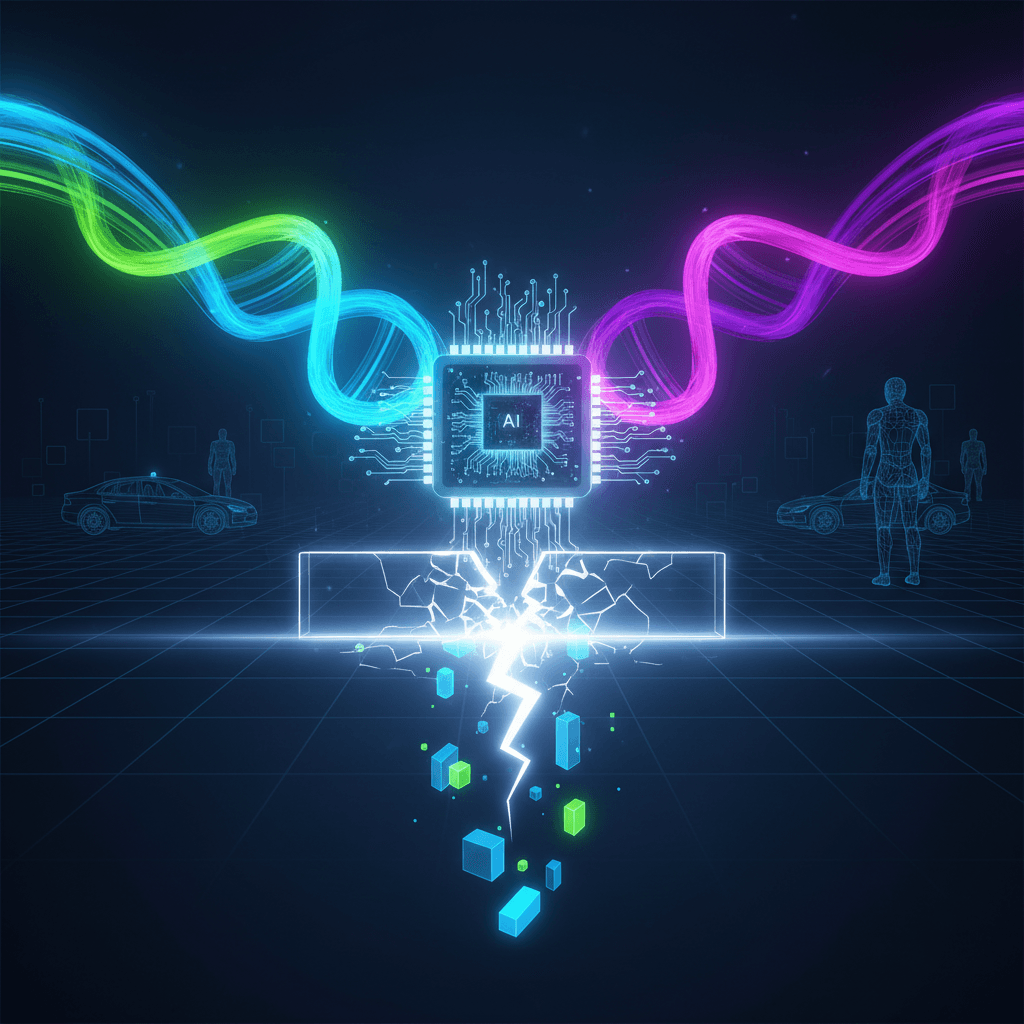Musk: Tesla, Intel Partnership Targets AI Chips 90% Cheaper Than Nvidia
Musk hints at a Tesla-Intel AI chip deal, potentially cutting costs by 90% and challenging Nvidia's market grip.
November 10, 2025

A potential partnership between Tesla and Intel to produce artificial intelligence chips at a fraction of the cost of current market leader Nvidia is poised to send shockwaves through the technology industry. The audacious claim, suggesting AI hardware could be manufactured for as little as 10% of the cost of Nvidia's offerings, was floated by Tesla CEO Elon Musk during the company's annual shareholder meeting on November 6, 2025.[1][2][3] While no formal agreement is in place, the mere suggestion of a collaboration between the electric vehicle giant and the legacy chipmaker signals a potential realignment in the AI infrastructure landscape that enterprise leaders are watching closely. The discussions, though preliminary, could address Tesla's looming chip supply crisis while simultaneously providing a monumental opportunity for Intel to reassert its relevance in the high-stakes AI semiconductor market.[4][5]
The impetus for this potential alliance stems from Tesla's insatiable and rapidly growing demand for specialized AI processors.[4] The company's ambitions in autonomous driving, including the rollout of its "Cybercab" robotaxi, and its development of humanoid robots like Optimus, are entirely dependent on a massive supply of powerful, efficient AI chips.[6][7] Musk revealed that even the most optimistic production forecasts from its current suppliers, Taiwan Semiconductor Manufacturing Co. (TSMC) and South Korea's Samsung Electronics, would be insufficient to meet Tesla's future needs.[1][2][3] This projected shortfall has driven Tesla to consider extraordinary measures, including the construction of its own massive semiconductor production facility, which Musk dubbed a "terafab," capable of processing over 100,000 wafers per month.[2][6][8] It is within this context of securing its vertical integration and future-proofing its supply chain that the prospect of a partnership with Intel has emerged.[4]
For Intel, a collaboration with a high-volume, cutting-edge customer like Tesla would be a transformative victory for its foundry business.[4][2] The American chipmaker has invested heavily in its IDM 2.0 strategy, aiming to become a major contract manufacturer for other companies and compete directly with TSMC and Samsung.[4] Having lagged significantly behind Nvidia in the lucrative AI accelerator market, securing a partnership with Tesla to produce its custom-designed fifth-generation AI5 and subsequent AI6 chips would provide a critical validation of Intel's advanced manufacturing processes.[4][5] The U.S. government has also shown strategic interest in bolstering domestic semiconductor manufacturing, recently acquiring a 10% stake in Intel.[5][9] A deal with Tesla would align with these national interests and could attract other major AI players to Intel's foundry services.[2][5] The market's positive reaction, with Intel's shares rising 4% in after-hours trading following Musk's comments, underscores the perceived significance of such a deal.[1][9]
The most striking aspect of the potential partnership is the projected cost and efficiency of Tesla's custom silicon. Musk claimed that the forthcoming AI5 chip would not only cost a tenth of what it costs to manufacture Nvidia's top-tier chips but would also consume only about one-third of the power of Nvidia's Blackwell GPU.[1][2][3][10] If realized, these figures represent a paradigm shift in the economics of deploying AI at scale. For years, the high cost and power consumption of AI hardware have been significant barriers for many enterprises. A dramatic reduction in these areas could accelerate AI adoption across numerous sectors beyond automotive and robotics. Tesla's chips are designed specifically for its own software and AI workloads, a specialized approach that contrasts with Nvidia's more general-purpose GPUs.[4] This tight integration of hardware and software is a core tenet of Tesla's strategy to optimize performance and cost.
While the prospect of a Tesla-Intel alliance is compelling, it remains a forward-looking statement rather than a concluded deal. Musk himself stated, “We haven't signed any deal, but it's probably worth having discussions with Intel.”[1][3] The timeline for Tesla's next-generation chips sees limited production of the AI5 in 2026, with mass production slated for 2027, and a more powerful AI6 chip aiming for volume production by mid-2028.[1][11][12] The complexities of building and ramping up advanced semiconductor fabrication are immense, with new fabs costing tens of billions of dollars and taking years to become operational.[12] Nevertheless, the public pronouncement from Tesla's chief has firmly placed the spotlight on the evolving dynamics of AI chip design and manufacturing. The potential for a new powerhouse partnership threatens to disrupt the existing hierarchy and could ultimately reshape the cost structure and accessibility of the foundational technology of the AI era.